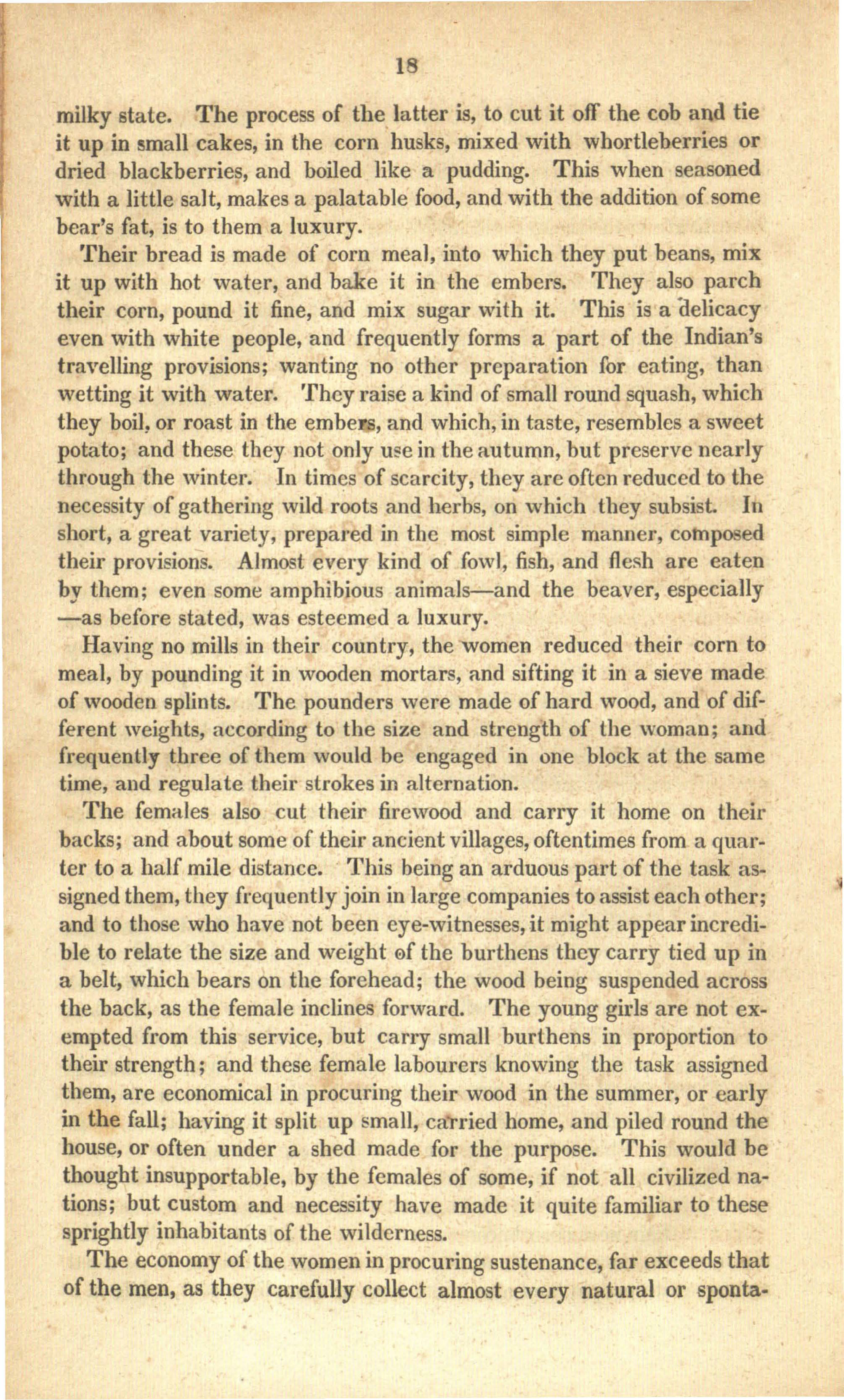milky state. The process of the latter is,
to cut it off the cob and tie
it up in small cakes, in the corn husks,
mixed with whortleberries or
dried blackberries, and boiled like a pudding.
This when seasoned
with a little salt, makes a palatable food, and with the
addition of some
bear's fat, is to them a luxury.
Their bread is made of corn meal, into which they put bean, mix
it up with
hot water, and bake it in the embers. They also parch
their corn, pound it
fine, and mix sugar with it. This is a delicacy
even with white people, and
frequently forms a part of the Indian's
travelling provisions; wanting no
other preparation for eating, than
wetting it with water. They raise a kind
of small round squash, which
they boil or roast in the embers, and which,
in taste, resembles a sweet
potato; and these they not only use in the
autumn, but preserve nearly
through the winter. In times of scarcity, they
are often reduced to the
necessity of gathering wild roots and herbs, on
which they subsist. In
short, a great variety, prepared in the most simple
manner, composed
their provisions. Almost every kind of fowl, fish, and
flesh are eaten
by them; even some amphibious animals - and the beaver,
especially
- as before stated, was esteemed a luxury.
Having no mills in their country, the women reduced their corn to
meal, by
pounding it in wooden mortars, and sifting it in a sieve made
of wooden
splints. The pounders were made of hard wood, and of dif-
ferent weights,
according to the size and strength of the woman; and
frequently three of
them would be engaged in one block at the same
time, and regulate their
strokes in alternation.
The females also cut their firewood and carry it home on their
backs; and
about some of their ancient villages, oftentimes from a quar-
ter to a half
mile distance. This being an arduous part of the task as-
signed them, they
frequently join in large companies to assist each other;
and to those who
have not been eye-witnesses, it might appear incredi-
ble to relate the size
and weight of the burthens they carry tied up in
a belt, which bears on the
forehead; the wood being suspended across
the back, as the females incline
forward. The young girls are not ex-
empted from this service, but carry
small burthens in proportion to
their strength; and these female labourers
knowing the task assigned
them, are economical in procuring their wood in
the summer, or early
in the fall; having it split up small, carried home,
and piled round the
house, or often under a shed made for the purpose. This
would be
thought insupportable, by the females of some, if not all
civilized na-
tions; but custom and necessity have made it quite familiar to
these
sprightly inhabitants of the wilderness.
The economy of the women in procuring sustenance, far exceeds that
of the
men, as they carefully collect almost every natural or sponta-

